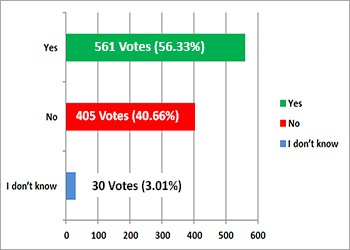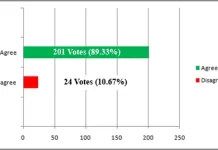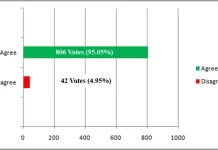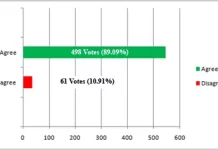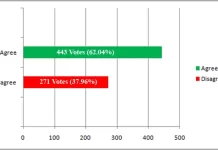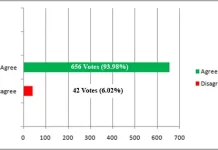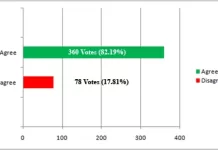Comments from readers: –
1. It’s a good initiative. But the government should give some remuneration as per the market value and verify the purpose of the structures built.
2. I don’t agree completely. If land on the way is the only meaningful property a person owns, whether inherited or bought with hard-earned money, then it is not right for anyone to expect them to part with it for nothing. If anyone willingly donates then no issue, but blackmailing by putting development on a standstill by giving this excuse is not ‘sabka saath, sabka vikas’…. Reasonable compensation is not only right but in some cases also a necessity wherein unemployed persons can only manage to ‘scavenge’ for money in lieu of their land to start something of their own.
3. Till today most of the eastern Arunachal districts’ populace never asked for any compensation for road or other government establishments and the word ‘compensation’ was unheard for such developmental activities, but now the trend of western Arunachal is going to engulf the whole of Arunachal. If this trend of demanding compensation for each inch of land continues, the government will have to incur a huge amount of fund only for compensation payment.
4. Land is a cultural and emotional heritage of tribal culture. Besides land, farmers have nothing else. Donating land would mean donating a fair share of our income or a cent of its source at the least. The plot could have been used for agricultural purposes by the farmers, and there’s nothing wrong in paying compensation for the same. What’s wrong with the right amount of compensation being paid?
5. Yes, this would help the state government avoid compensation. This saved money can be deployed in important projects or in supplementing existing projects. Also, it would prevent eviction and other inevitable issues. In the present scenario, people consciously build infrastructures around or near government proposed areas as a way to demand compensation. Many see it as an investment opportunity. I believe this culture will be reduced if the proposed policy comes into effect.
6. All this is the government’s fault. It started paying huge money without verification and now everyone wants a share of what it started and it cannot pay. This is precise example of digging one’s own grave.
7. Agreed totally. The compensation issue has already delayed the Trans-Arunachal Highway’s (TAH) Potin-Pangin stretch, which was originally sanctioned during the visit of the then prime minister, Manmohan Singh, in 2008. More than a decade has elapsed but this particular portion is yet to be built. Others in the western and eastern portions are reaping the benefits of good quality two-lane TAH roads, because they had no issue with the compensation disbursed by the government. In some portions, people have not even claimed compensation; rather they facilitated early execution and completion of projects. They formed committees to look after the issues requiring intervention of the locals/community, as and when raised by the concessionaire. We really need to introspect our approach in building infrastructure, be it road projects, building projects, hydro projects, etc. We cannot keep on blaming the government alone for doing nothing.
8. I don’t agree with this statement. Sometimes it may apply to the rich, but not to the poor. They don’t have land for their own use; how can they donate land to the government?
9. Compensation should be given to the genuine ones. But illegal property construction and false/fake bills should be stopped.
10. Although unethical on their part, this has come to this point due to the mindless greed of our people, who have been infected with the selfish desire to extract money in the form of compensation or contract works from such projects. One will come across so-called intellectuals, including officers, obstructing important road projects, like those under the PMGSY, or creating unnecessary hurdles only for want of compensation.
11. Who will give land without enforcement? The government must realize that India’s GDP mainly depends upon having good road connectivity. Some roads will be economically profitable and some roads will be socio-economically profitable. One way or other, direct or indirect income or economical growth of the country depends upon transportation, either by waterways, railways, airways or roadways. Out of these, the road sector is playing a major role. The government must realize that enforcement is a part of planning or development, but not at the cost of people’s lives.
12. Our people who claim compensation for rivulets, rocky hills, mountains shouldn’t be given even a penny. However, compensation must be given to those who earn food and livelihood from their paddy fields, orchards, etc, and have standing structures along the RoW.

